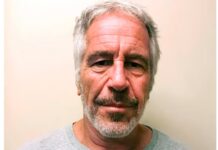Minnesota Representative Dean Phillips has officially launched his presidential campaign, aiming to challenge President Joe Biden in the Democratic primary. Speaking outside the New Hampshire State House in Concord, Phillips stressed the need for a new generation of Democratic leaders and expressed his readiness to lead the nation to a more secure and prosperous future.
Dean Phillips’ Presidential Ambitions:
Dean Phillips, a third-term congressman from Minnesota, embarked on an unexpected journey into presidential politics. Surrounded by a small crowd of supporters and curious bystanders, he formally declared his candidacy for the Democratic nomination for President of the United States in New Hampshire, a critical early-voting state.
Phillips, known for his moderate stance within the Democratic Party, made it clear that his decision to challenge President Joe Biden was rooted in his belief that it was time for a change. He emphasized the need for a new generation of Democratic leaders to steer the nation toward a more secure and prosperous future.
However, Phillips’ decision to challenge an incumbent president from his party was far from spontaneous. He had tried, in vain, to encourage Biden to pass the torch and had attempted to convince other Democratic candidates to enter the primary race. When these efforts failed, he took it upon himself to challenge the president he referred to as a “terrific president.”
Challenges to Biden:
Dean Phillips had been vocal in his concerns about President Biden’s chances in a general election rematch against former President Donald Trump. Citing Biden’s age and low approval ratings, Phillips had repeatedly argued that the president would be a weak available election candidate.
Despite intraparty frustration over his calls for a Biden alternative, Phillips believed the party needed a new leader, a fresh face to inspire voters and lead the nation. He saw himself as answering the call for change that he believed Biden might be unable to meet.
Campaign Strategy and Goals:
Phillips and his campaign team were determined to mount a serious challenge to Biden that extended beyond the borders of New Hampshire, one of the key early primary states. He believed running solely to raise his national profile would be “foolish”. He expressed his willingness to endure the challenges, including “mean-spiritedness and aggression,” a presidential campaign entails.
Steve Schmidt, a former Republican operative turned campaign advisor, revealed that Phillips planned to hold more than 119 town hall meetings in early-voting Democratic primary states, including New Hampshire, South Carolina, and Michigan. He emphasized that winning the first race was essential to becoming the Democratic nominee.
Policy Focus and Critiques:
Phillips wasted no time in challenging President Biden on policy issues. He raised concerns about rising costs that placed an undue burden on Americans and called for redirecting foreign aid packages that the Biden administration supported for Ukraine and Israel towards addressing domestic issues.
Mike Johnson’s Triumph in the Republican House Speaker Nomination
Additionally, Phillips praised former President Donald Trump’s ability to mobilize voters who felt alienated and intended to make immigration, an area of vulnerability for the Biden administration, a key focus of his campaign. He had visited the southern border twice and voiced strong criticism, describing it as insecure and inhumane. Phillips believed that it was unfair both to those seeking refuge and to the border patrol agents who had shown extraordinary humanity.

Impacts on the Democratic Party:
Phillips’ decision to challenge President Biden had significant implications for the Democratic Party. While the party aimed to unify its supporters around the incumbent president, the unexpected primary challenge presented an unwelcome distraction and highlighted areas where Biden was perceived as weak.
The situation was further complicated because President Biden had chosen not to file to appear on the New Hampshire Democratic primary ballot, as the state was not complying with the national party’s revised nominating calendar. Instead, Democrats were planning a write-in campaign for the president. Dean Phillips’ entry into the race made this effort even more crucial for New Hampshire Democrats, who sought to prevent an embarrassing early primary defeat for Biden.
Campaign Strategy and Reach:
Dean Phillips’ campaign strategy focused on New Hampshire, where he had already reserved $50,000 in ad time, and where he intended to engage directly with voters. New Hampshire’s tradition of expecting presidential candidates to participate in retail politics was a stark contrast to Biden’s approach. Phillips aimed to stand before voters, listen to their concerns, and discuss the path forward, aligning with the state’s political traditions.
Beyond New Hampshire, Dean Phillips faced an uphill battle. Despite using his wealth to initiate his campaign, estimated to be in the tens of millions, he made it clear that he would not self-fund his bid. Instead, he planned to rely on small-dollar donors, acknowledging his relative lack of name recognition compared to other potential Democratic presidential contenders.
Challenges in South Carolina:
Phillips’ decision to focus on New Hampshire presented a challenge in South Carolina, another early primary state. The Democratic National Committee had sought to elevate South Carolina to go first on the primary calendar, making it an important testing ground for presidential candidates. However, Dean Phillips was perceived as failing to gain traction in the Palmetto State, and the South Carolina Democratic Party Chair expressed enthusiasm for supporting President Biden as their nominee.
Dean Phillips responded by expressing his eagerness to campaign in South Carolina, rejecting the notion that it was somehow shameful to focus on New Hampshire. He saw his campaign as an antidote to the disease of politics, aiming to bring fresh ideas and leadership to the forefront.
Phillips Evolution and Stance on Biden:
In 2018, Dean Phillips had a political transformation, moving from being a well-mannered, moderate member of the Democratic wave that assisted the party in gaining control of the House. During his first campaign, he emphasized fixing government dysfunction and protecting the Affordable Care Act.
He had become as one of his party’s most well-known voices in favor of President Biden not running for reelection. He felt that new leaders of a different generation were needed in the Democratic Party. Because of the backlash against him in his party, he decided to step down as the House Democratic leader.
Outreach to President Biden:
In August, Dean Phillips attempted to reach President Biden, but the president was unavailable. Instead, Phillips talked with White House chief of staff Jeff Zients, who heard him out. The message was that President Biden was the right person to win in 2024 and finish the job.
Phillips characterized his effort to reach out to Biden as a courtesy to advise him of his intentions, which, at the time, were to call for a new generation of candidates to compete for the nomination. The call with Zients was described as brief but friendly.
Biden’s Resilience and Support:
The Biden campaign remained confident in its efforts, emphasizing the “historic, unified support” for the president’s reelection within the Democratic Party. They recognized the high stakes of the upcoming election and mobilized the winning coalition that President Biden could uniquely bring together to face potential Republican challengers.
Reception and Challenges:
Back home in Minnesota, Dean Phillips’ presidential ambitions were met with a mixed reception. In a fundraising email sent by Democratic Governor Tim Walz, it was implied that some individuals might engage in “crazy things” like creating political sideshows for themselves, potentially referring to Phillips’ campaign. Nevertheless, the email clarified that Minnesota strongly supported Joe Biden and worked tirelessly to ensure his reelection.
Phillips also faced a primary challenger for his suburban Twin Cities congressional seat in the form of DNC Executive Committee member Ron Harris. This presented another electoral challenge for Phillips, who had until June 4 to register to run for reelection in Minnesota ahead of the state’s August 13 primary for non-presidential races.
Promoting Leaders of New Generation:
Dean Phillips’ decision to challenge President Biden was rooted in his belief that the Democratic Party needed a fresh approach and new leadership. While he acknowledged the accomplishments of the Biden administration, he couldn’t ignore the concerns raised by voters about the president’s age and his low job approval ratings.
A September CNN poll revealed that two-thirds of Democrats wanted the party to nominate someone other than Biden, citing age as their biggest concern about his 2024 campaign. However, 67% of Democrats believed Biden was likely to be the party’s nominee, and 82% had no specific challenger in mind.
The Unpredictable Path Ahead:
Dean Phillips entry into the Democratic primary race added an element of unpredictability to the 2024 presidential election. Despite being an underdog candidate with relatively low name recognition compared to other potential contenders, his campaign was fueled by a commitment to change and a belief in the need for a new generation of leaders.
As the campaign unfolded, it remained to be seen how Dean Phillips’ challenge to the incumbent president would shape the narrative of the Democratic Party and influence the overall dynamics of the presidential race. With his focus on early primary states, his grassroots approach, and his willingness to engage in meaningful discussions with voters, Dean Phillips brought a unique perspective to the political landscape, even in the face of considerable odds.





